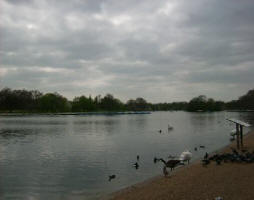 About Horizon 2020
About Horizon 2020
Horizon 2020: Approach
• Not just about what the EU will do – all partners must contribute
• Open to all who are ready to cooperate
• Mutually reinforces implementation of MSSD
• Act where EU has added value
– Raise wider political profile (beyond environment ministries)
• Use structure for EU/Partner dialogue at relatively high levels of government
• Refocus attention on long-standing issue
– Use experience in EU and other regions (i.e. Danube- Black Sea DABLAS)
Pollution reduction projects
– Develop pipeline in priority sectors with IFIs, MAP etc.
• Capacity building
– Goes beyond the priority sectors
• Research
– create, share and communicating scientific knowledge
• Monitoring, steering and review
– Scorecard and indicator process – Steering committee
The recent Commission Communication establishing an environment strategy for the Mediterranean sketches out the detail of Horizon 2020, grouping planned activities under four headings:
- Projects to reduce the most significant sources of pollution. The initial focus will be on industrial emissions, municipal waste and urban waste water, which are responsible for up to 80% of Mediterranean Sea pollution.
- Capacity-building measures to help neighbouring countries create national environmental administrations that are able to develop and police environmental laws.
- Using the Commission's research budget to develop greater knowledge of environmental issues relevant to the Mediterranean and ensure this is shared. The experience built up from the LIFE programme and the Short and Medium Term Action Programme SMAP will be shared between the partners.
- Developing indicators to monitor the success of Horizon 2020.
PARTICIPATION:
Whilst the European Union can use its political weight to raise the profile of the importance of reducing pollution in the Mediterranean it cannot be the only driving force behind this initiative. It is important that all relevant actors are allowed to bring their experience and expertise to bear. Participation in the initiative will be open to the Member States of the European Union, Euro-Mediterranean Countries covered by the European Neighbourhood Policy, international organisations, financial institutions and bilateral donors, representatives of the NGO community and civil society and other interested parties. The initiative should not be restricted to national level stakeholders but should reach out to involve local and regional actors in a bottom-up approach.
To ensure maximum coherence and synergy with ongoing actions, the initiative will be developed in full consultation with all interested stakeholders.
Participation may be in the form of contributing previous experience and results, human expertise or financial resources.
THE COMPONENTS OF THE INITIATIVE:
The European Neighbourhood Policy (and by extension the Euro-Mediterranean Partnership) has set the overall strategic direction for EU participation in this regional initiative. In addition, ongoing developments in the context of the Barcelona Convention and the Mediterranean Strategy on Sustainable Development can provide additional support for this initiative.
It should be clearly understood that a great deal of work has already taken place involving many different bodies. Much work (particularly in the field of data collection and problems identification) has already been done and the results are available. The depollution initiative can be considered as an additional stimulus to the ongoing work of other partners and it can help to strengthen cooperation with key actors (such as MAP). This will put in place a wider system of cooperation toward ensuring improvement of the environment in the region and therefore contributing to its sustainable long-term development.
It is important for this initiative to focus activities on a limited number of sectors in order to test the approach and demonstrate early progress. The European Commission intends to use its experience in other geographical regions in tackling priorities, without creating new structures or overheads. The initiative should be open to a bottom-up component to encourage local ownership. It is intended to focus initial efforts on supporting concrete depollution actions in a selected number of sectors to trigger the necessary allocation of human and financial resources in the countries concerned that will ensure the sustainability of any output from the initiative. The timescale of this first stage should be that of the five year work programme that will be agreed at the 10th anniversary summit of the Barcelona Declaration.
Whilst this first stage would remain narrowly focussed on a small number of pollution issues, if it is successful it could be expanded at a later stage to cover other problems in conjunction with the developing work of the MSSD. Whilst this action may be narrowly focussed, efforts to integrate environmental protection measures into other sectors will continue in parallel through the mechanisms of the ENP, Euro-Med and other processes such as the MSSD.
It should be emphasised that addressing the immediate causes of pollution alone is insufficient – the root causes also need to be addressed. Creating the institutional framework for transposing, implementing and enforcing environmental policy will need to continue in parallel to any concrete infrastructure measures that are supported through this initiative. Equally the role of civil society will need to be enhanced in the development of environmental policy in the region. Without this parallel support, infrastructure measure alone will not lead to long-term depollution.
 you are not logged in
you are not logged in







